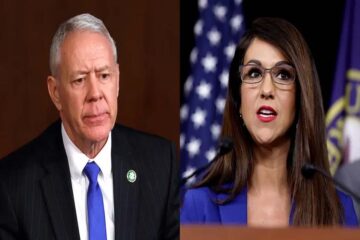Biden’s Directive: Military to Construct Gaza Port for Aid

President Joe Biden is set to unveil a significant alteration in his approach to the Israel-Gaza conflict during his upcoming State of the Union address. This move comes amidst mounting pressure from left-wing circles and pro-Palestinian activists, who have been vocal in their dissatisfaction with the United States’ stance on the issue.
Addressing Humanitarian Needs
One of the key announcements expected from President Biden is the directive for the military to construct a port in Gaza dedicated to the delivery of humanitarian aid. This decision, described as an “emergency mission,” aims to facilitate the efficient transportation of essential supplies to the Gaza Strip.
Urgent Humanitarian Crisis
The decision to establish a Gaza port underscores the severity of the humanitarian crisis gripping the region. Reports from the United Nations indicate that Palestinians in Gaza are facing dire circumstances, with the threat of famine looming large. The situation has been exacerbated by ongoing violence, with the Gazan Health Ministry reporting a significant loss of life and widespread devastation.
Escalation of Conflict
Tensions between Israel and Gaza escalated following terrorist attacks by Hamas in October 2023, resulting in a barrage of artillery and missile strikes by Israeli forces. The conflict has since led to a substantial loss of life on both sides and has drawn international condemnation.
Domestic Political Fallout
President Biden’s handling of the Israel-Gaza conflict has not gone unchallenged domestically. Left-wing voters, sympathetic to the Palestinian cause, have expressed discontent with the administration’s support for Israel. This discontent has translated into tangible political consequences, with reports indicating a decline in support for Biden among key demographics.
Evolving Stance
In response to mounting pressure, the Biden administration has shown signs of recalibrating its approach to the conflict. Vice President Kamala Harris recently called for a six-week cease-fire, although her remarks were tempered compared to initial drafts. Despite calls for a peaceful resolution, achieving a lasting cease-fire remains elusive, with Hamas representatives hesitating to endorse US-backed initiatives.
Conclusion
President Biden’s decision to order the construction of a Gaza port for humanitarian aid signifies a significant shift in US policy towards the Israel-Gaza conflict. While it aims to alleviate the suffering of Palestinians in Gaza, the move also reflects the complex political dynamics at play both domestically and internationally. As the conflict persists, finding a lasting resolution remains a formidable challenge for all stakeholders involved.
















